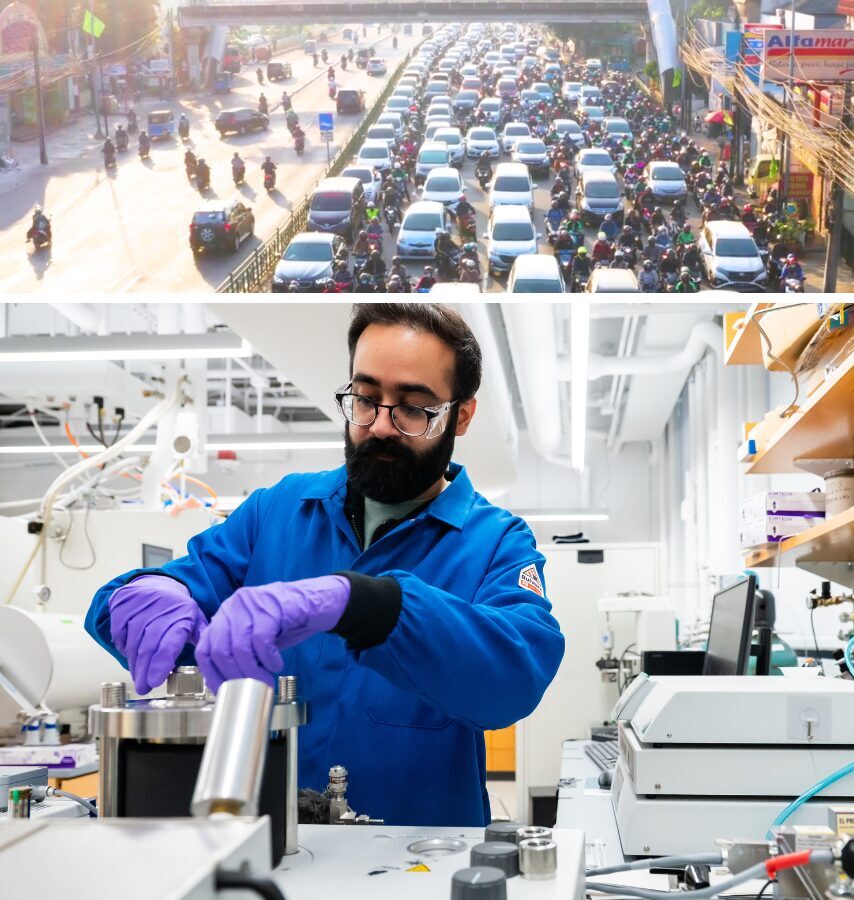Salata Institute Climate Research Clusters Call for Proposals - Now Closed
UPDATED: April 8, 2025
Read about our new clusters here.
The Salata Institute for Climate and Sustainability at Harvard University invites proposals from Harvard University ladder faculty for the Climate Research Clusters Program.
The Climate Research Clusters Program
The purpose of the Climate Research Clusters Program is to produce useful and impactful solutions to climate problems. Research clusters are intended to be ambitious, interdisciplinary, cross-School efforts to take on climate problems that are narrow enough to ensure that concrete solutions emerge, but broad enough that the solutions represent significant progress in meeting the world’s climate challenge.
Research clusters will comprise Harvard faculty, post-docs, and students, and they may include visiting scholars, practitioners, and external collaborators. Cluster activities should include external engagement, for example, through conferences and/or convenings. The final result should be a concrete proposal or proposals to address an aspect of the climate crisis based on the new knowledge that the research cluster produces.
Available Funding:
Grant amount. In this round of funding, the Salata Institute will award as many as three Climate Research Clusters of up to $600,000 per project, per year, for a period of up to three years.
Eligibility and Review Criteria
Evaluation criteria. The Salata Institute’s Research Committee will appoint a review committee that will comprise internal and external reviewers, who will evaluate proposals based on a set of core criteria:
- Innovation – The proposed research must constitute a contribution to knowledge/an advance relative to status quo (and other ongoing efforts) in the field.
- Impact – The research should lead directly to real-world impact that has a realistic potential to make significant progress on a specific climate challenge. The path for this impact should be clear from the proposal although it will vary from one topic to the next. In many cases this will entail engagement throughout the research process with real-world external interested parties (NGOs, corporations, governments). This external engagement will be facilitated and organized by the Salata Institute in coordination with Climate research Clusters PIs and does not require cluster-level staffing.
- Equity – The extent to which the proposed project would address any equity concerns that pertain to the issues on which the research would focus.
- Interdisciplinary and cross-School collaboration – The requirement that the proposed project would involve a PI and one or more co-PI’s from at least two of Harvard’s Schools.
Submission Cycle Timeline
Three-step proposal process. PIs should submit a 500-word concept proposal by April 1, 2024. The concept proposal should state the problem, describe sample research questions to be explored, explain why that research could lead to impactful real-world outcomes, address any equity concerns associated with the topic, and provide a provisional list of the research team including co-PIs. The Research Commitee will confer with the proposal teams, potentially suggest mergers or extensions of proposed projects, and hold brainstorming sessions. Based on this process, teams will update their concept proposals by June 3, 2024. Selected teams will then be invited to provide a full proposal, which will be due September 16, 2024. Awards will be announced and funding will commence by January 2025.
How to Apply
To apply for funding from the Climate Research Clusters program, PIs must use the Salata Institute’s application portal. PIs will be asked to submit the following information at each step of the proposal process:
Step 1: Concept Proposal (500 words) – due by April 1, 2024
- Title
- Submitting team (PI and any co-PIs)
- Statement of the real-world climate problem the cluster addresses
- Description of cluster research questions
- Possible additional cross-School collaborative opportunities for the cluster
- Likely uses of funds, in broad terms
Step 2: Revised Concept Proposal (1000 words) – due by June 3, 2024
Step 3: Full proposal – due by September 16, 2024
- Contact information that includes applicant’s name, affiliation, title, address, phone number, and email.
- 4000-word proposal that describes the research project. A supplementary field is provided to upload a separate document with citations, images, etc. Applicants are not required to include any supplementary information, and reviewers are not required to consider this supplementary information in their evaluation.
- Description of the interdisciplinary, cross-school collaboration, including the contributions of each member of the research cluster.
- Bio sketch or CV of ladder faculty member, serving as principal investigator, co-investigators, collaborators, and other team members limited to two pages each.
- Project Budget requires both a Budget Form and Budget Justification. Applicants must use the Budget Form and Budget Justification Form provided in the application.
- Non-allowable Expenses include:
- Student tuition
- Renovation costs
- Allowable Expenses include:
- Academic-year salary support for ladder faculty principal investigators. (Requests for partial support of principal investigator summer salary will be considered in limited circumstances.) Applicants requesting salary support must include a letter signed by their school’s academic dean, or other appropriate institutional officer, indicating the school’s approval of the request for salary. Such a letter is also required for any Harvard faculty member serving as a co-investigator on the project, but not for others on the project team.
- If the total cost of the proposed project is larger than the award requested from the Climate Research Clusters program, please include an overall financial plan for the project that indicates other sources of funding.
- Applicants should note that any benefits-eligible personnel (e.g. faculty, exempt employees, union employees, post-doctoral fellows, teaching assistants, temps) expenses in the budget must include the appropriate fringe rates for each year of funding. If the application proposes to fund a certain amount of an existing employee’s time, then the budget must also include that percentage of applied fringe. Applicants should consult with Human Resources at their home schools for applicable rates.
- Capital projects and renovation costs will not be covered.
- The recipient of any funding involving travel should adhere to Harvard University’s travel policies.
- Non-allowable Expenses include:
- Other Support: Applicants must use the form provided in the application to summarize active and pending support for the ladder faculty member, serving as Principal Investigator. Other Support includes all financial resources, whether Federal, non-Federal, commercial, or institutional, available in direct support of an individual’s research endeavors, including but not limited to research grants, cooperative agreements, contracts and/or institutional awards. Please include any Harvard internal grants or major, project-specific support. Please do not include any “start-up” packages and/or tenure-transfer funding.
- Project Administration: PIs should briefly describe how the Cluster will administer the project over its three-year term. For example, PIs may opt to use exisiting administrative capacity in their home schools, or they may plan to hire staff to assist in project coordination and financial administration.
- Space Needs: PIs should indicate any space needs for their proposed cluster in case the Salata Institute is able to meet them. The Salata Institute is able to provide meeting space, some shared office space for faculty, and limited office space for postdocs and research assistants.
- Assurance of Compliance: All recipients of an award from the Climate Research Clusters program are expected to comply with all University, (or local institutional, if awarded through an affiliated entity), policies governing the conduct of research including, but not limited to, the use of animals, human subjects, hazardous materials, and export controls. Awardees will be asked to provide the name and signature of a school or department administrator who, in addition to the principal investigator, will certify that the project complies with all relevant policies. Funds will not be made available, and invoices from non-Harvard entities will not be reimbursed, without such certification. All applicants are subject to audit.
Additional Information
Please refer to our FAQ page for answers to frequently asked questions.







